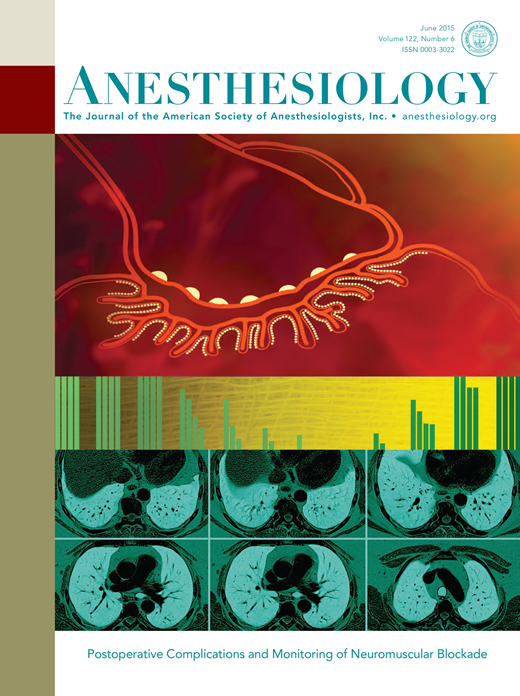“疼痛和痛苦对我来说太大了,我无法控制”:一项关于麻醉师在挑战性临床事件后情绪困扰的定性研究。
IF 9.1
1区 医学
Q1 ANESTHESIOLOGY
引用次数: 0
摘要
背景:麻醉师处理可能导致情绪困扰的急性临床事件。这些经历可能导致心理健康挑战,并影响临床医生提供护理的能力。然而,关于引起情绪困扰的临床事件的具体因素的文献是有限的,它们的影响仍未得到充分研究。目的是探索麻醉医生的执业环境中与临床事件相关的痛苦因素,并引出与临床事件相关的长期痛苦的情绪和症状。方法邀请某学术机构的美感学教师进行30分钟的个人定性访谈。他们被要求反思一个导致他们持续情绪困扰的临床事件。问题是基于创伤后应激障碍的风险因素,集中在两个时间段:事件发生期间和事件发生后。为了保持研究的严谨性,使用了一个强调四个组成部分的可信度框架:可转移性、可靠性、可信度和可确认性。随后采用了两名编码员的主题分析方法,并始终保持审计跟踪。结果对来自9个麻醉专科的20名麻醉学教师进行了访谈。导致情绪困扰的危险因素表现为三个方面:临床事件、环境和患者。与临床相关的危险因素包括临床错误、医生第一次遇到临床情况、缺乏足够的临床支持和意外结果。环境风险因素包括法律和专业影响、非麻醉科同事的虐待、个人压力和不支持的领导。与患者相关的风险因素包括与患者建立了密切的关系,患者与临床医生或其亲人相似,以及患者年龄小。参与者描述了诸如悲伤、内疚、羞耻、无助和自我怀疑等情绪,以及情绪压力、闪回和侵入性想法的身体症状。结论具有挑战性的临床事件对美学家产生了深刻而持久的情感影响。未来的研究应该评估干预措施,以减轻这些对麻醉师心理健康和职业寿命的影响。本文章由计算机程序翻译,如有差异,请以英文原文为准。
"The pain and suffering are just too great for me to manage": A qualitative study of emotional distress among anesthesiologists after challenging clinical events.
BACKGROUND
Anesthesiologists manage acute clinical events that can cause emotional distress. These experiences can lead to mental health challenges and affect clinicians' ability to provide care. However, the literature regarding specific factors of clinical events that cause emotional distress is limited, and their impact remains understudied. The objectives were to explore elements within anesthesiologists' practice environment contributing to distress associated with clinical events and elicit emotions and symptoms regarding clinical events that are distressing long-term.
METHODS
Anesthesiology faculty members at an academic institution were invited to engage in 30-minute individual qualitative interviews. They were prompted to reflect on a clinical event that caused them lasting emotional distress. Questions were based on risk factors for post-traumatic stress disorder, focusing on two time periods: during the event and after it. To maintain study rigor, a trustworthiness framework was used that emphasized four components: transferability, dependability, credibility, and confirmability. A thematic analysis approach with two coders followed, with an audit trail maintained throughout.
RESULTS
Twenty anesthesiology faculty members representing nine anesthesiology subspecialties were interviewed. Risk factors leading to emotional distress represented three areas: the clinical event, context, and patient. Clinical-related risk factors included clinical errors, a physician's first time encountering a clinical scenario, lack of adequate clinical support, and unexpected outcomes. Contextual risk factors involved legal and professional repercussions, mistreatment by non-anesthesiology colleagues, personal stress, and unsupportive leadership. Patient-related risk factors included having developed a close relationship with the patient, a patient's similarity to the clinician or their loved ones, and young patient age. Participants described emotions such as sadness, guilt, shame, helplessness, and self-doubt, and physical symptoms of emotional stress, flashbacks, and intrusive thoughts.
CONCLUSIONS
Anesthesiologists experience profound and lasting emotional impacts from challenging clinical events. Future research should evaluate interventions to mitigate these impacts on anesthesiologists' mental health and career longevity.
求助全文
通过发布文献求助,成功后即可免费获取论文全文。
去求助
来源期刊

Anesthesiology
医学-麻醉学
CiteScore
10.40
自引率
5.70%
发文量
542
审稿时长
3-6 weeks
期刊介绍:
With its establishment in 1940, Anesthesiology has emerged as a prominent leader in the field of anesthesiology, encompassing perioperative, critical care, and pain medicine. As the esteemed journal of the American Society of Anesthesiologists, Anesthesiology operates independently with full editorial freedom. Its distinguished Editorial Board, comprising renowned professionals from across the globe, drives the advancement of the specialty by presenting innovative research through immediate open access to select articles and granting free access to all published articles after a six-month period. Furthermore, Anesthesiology actively promotes groundbreaking studies through an influential press release program. The journal's unwavering commitment lies in the dissemination of exemplary work that enhances clinical practice and revolutionizes the practice of medicine within our discipline.
 求助内容:
求助内容: 应助结果提醒方式:
应助结果提醒方式:


